- Home
- Peter F. Hamilton
Light Chaser Page 3
Light Chaser Read online
Page 3
See you in a thousand years . . .
* * *
The time Amahle spent between the stars was hers to do with as she pleased. The Mnemosyne boasted an extensive library of electronic and print books, immersive entertainments, full-sense dramas, and even a good library of ancient movies from planets across The Domain, some from Old Earth itself. As well as its various opulent lounges, the life support section had a big gym, although she preferred her exercise in the swim aquarium with its shoals of natural and modified fish. And the AI could even be passable company when it made the effort—and she could be bothered to listen. However, her main source of entertainment came from the cargo of memory collars she collected from each world on the loop. Each of those precious collars contained ten centuries’ worth of impressions and experiences. Her life might be spent alone voyaging between the stars, but she lived thousands of real lives. It was a perfect existence for someone of her kind.
She’d been forgotten, considered a myth, worshipped as a goddess, and forgotten again by the planets she visited on her eternal loop as their static civilizations carried on regardless. The lives of the planet-bound might have been nasty, brutish, and short by comparison, but the human experience she gained from the collars was uniquely enriching. So, she spent most of her time living vicariously through their recordings.
With Winterspite a dim point of light in her wake, and the Mnemosyne accelerating outwards from its sun at one gee, she went through the cargo pods to find the collar that had been assigned to Gregor Rothenburg. With her trophy swinging from a finger, she settled in the sunset lounge, a grandiose compartment currently formatted in homage to a millionaire’s nineteen-sixties Malibu beach house. To match the elegant decadence, the AI produced a pitcher of margaritas. It was all part of the routine they’d developed. She started every new voyage checking up on her ex-lovers, to see how they’d fared once she’d left. She couldn’t help but be curious how their lives had turned out. Had they married? Had they parlayed their notoriety as a Light Chaser’s consort into wealth or political power?
She poured a drink from the pitcher and made herself comfortable in a recliner directly in front of the high windows looking out at the faux Pacific breakers. She studied the collar; sweat and grime of generations had indelibly stained the inside of the white band.
“You stay there,” she said to the cat, which was perched on the arm of the chair. Her glance flicked down to the addermal strips on her thighs, which sealed the scratches that’d been inflicted during the shuttle’s freefall approach to Mnemosyne. “Behave yourself while I see what we’ve got.”
* * *
As soon as Gregor woke that morning, he slung his patched and filthy nightgown around his shoulders. The flagstone floors of his studio were cold against his bare feet as he fought the urgent pressure in his bladder. He hurried to the back door, pulled it open, taking a long, steaming piss into the snow-covered yard. As he relieved himself, he sang a fragment of a half-remembered song.
Later, once he’d got the fire burning merrily in the grate and pulled on some decent woollen socks, he turned his attention to his easel. The picture he’d been working on was going to be a portrait of the Light Chaser Amahle—the goddess of the night sky, the immortal lantern-bearer of civilisation, and his own secret paramour. But so far, all he’d managed was a vague likeness. He found her eyes particularly tricky to get right. Only a week had passed since her departure, but every time he attempted to picture those miraculous eyes in his mind, they somehow blurred under his scrutiny, and the harder he concentrated, the more slippery the image became.
Gregor had often heard the wise men of the capital proclaim: We are all the sum and product of our memories. But if we start to forget little essential details—such as the exact likeness of a beloved—who then do we become?
As Amahle slipped from his mind’s eye, he wondered if he was also losing a part of himself. As he saw it, the job of a painter was to salvage these little fading moments of time and preserve them on canvas, in order to remind us who we once were and what was important to those people we used to be.
And maybe even let them live again.
The marketplace philosophers claimed a person never really died as long as they were remembered. And that was the cause to which Gregor had dedicated his life: being remembered. He’d studied enough old masters to know it was a futile, quixotic defiance of implacable time. That given long enough, even paint dried and flaked. But if just one of his paintings managed to endure the next ten centuries intact, there’d be a chance Amahle would see it. A chance those same eyes giving him such trouble today would one day lay their gaze upon the cracked and faded image his fingers were crafting there this morning—and thus, in a small way, he would have bridged that almost unimaginable chasm of time in order to live once more in her memory, a thousand years hence.
It was a nice thought. On a more prosaic note, he also knew he had to get this picture completed by Friday if he wanted to keep his thumbs unbroken. It needed to be delivered to the main hall of the castle in time for the grand feast on Saturday evening, when King Olaf would celebrate the gifts and learning bequeathed by the Light Chaser and mark the start of the new millennial countdown until her next visit. And only a suicidal fool would risk displeasing Olaf the Butcher, a man so impatient, he had once had a chef boiled alive for being late with his breakfast. Gregor picked up his brush and chewed the end as he regarded his work in progress. Maybe it was the desire for posterity which was slowing him down? Perhaps a single canvas was unable to bear the weight of all that expectation?
He tried to focus on a clear memory of the Light Chaser, but all that came to mind were the sensations of lying with her—the feverish warmth of her skin; the wine on her breath; and the surprising strength that allowed her to pin him to the bed even as he thrust upwards into her.
How could that passionate intensity be conveyed in something as lifeless as paint? The only solution he could envisage would be to depict her as a goddess—to plunder the iconography of Winterspite’s religious heritage in order to express his awe in terms a brute like Olaf might understand. A golden crown, he thought, or perhaps a set of justice scales? Something that places her both above and in judgement of mortal concerns. After all, kings died and castles fell, but the Light Chaser always endured, ageless and unending, in the dusk between the stars.
He dabbed his brush into some yellow paint and mixed it with a hint of white. Considered giving her one of those haloes that resembled a glowing space helmet.
A fist pounded against his door, dislodging dust motes to dance in the shafts of light squeezing through gaps in the warped planks. Cursing, he lowered the brush and waited, hoping whoever it was would go away. But the knocking started again, more insistently, and he sighed.
“All right, all right, I’m coming.”
He shuffled across the stone floor in his socks and unlatched the door to find a young boy of perhaps ten years on the threshold, shivering in the snow.
“What do you want?” Cold air swirled in around Gregor’s ankles. The flames in the hearth flickered as the logs spat.
Clear green eyes regarded him from a dirty, malnourished face. “Begging your pardon, sir. I have a message for the Light Chaser.”
Gregor felt a flash of exasperation. “I’m afraid you’re too late,” he said. “She’s gone.”
The boy smiled, unruffled by his irritation. “But she will return, and when she does, she’ll hear this message.”
“What are you talking about, child?”
“Your collar, sir. It records all your experience, everything you see and hear and feel.”
Gregor’s paint-stained fingers reached up to touch the smooth band around his throat. For the first time, he realised his paintings might not be the only way to be remembered. That one day, in some unimaginably remote future, Amahle might experience this very moment through his eyes. The thought somehow terrified and comforted him.
“What’s your message?�
�� he asked gruffly.
The child smiled, and he rolled up his sleeve to expose a fresh tattoo—a string of eight numbers crudely etched into the reddened skin.
“My birth name is Bartz, but she will know me as Carloman; and I say this to her: You must not trust your AI.” He nodded curtly and turned away.
Gregor watched the boy walk across the snowy ground, hugging himself against the chill. Exasperated, he called after him, “Is that it?”
Bartz or Carloman—whatever the boy was called—didn’t stop or even look around. “For this time,” he said. “Try and remember the last.”
* * *
Amahle put the old memory collar on the arm of her chair and took a sip from her now-warm margarita.
“That was weird,” she said.
“What was?” asked the ship’s AI.
She nearly told it what she’d experienced, but something about that boy . . . Which was stupid. “Oh, nothing.” She looked down at the cat, which had taken advantage of her distraction to curl up in her lap. Around her she sensed the familiar creaks and groans of the ship, the constant background hum of the negative mass drive carried through the great gantry spine, and the whisper of the air conditioning gusting inside the spacious chambers. The sounds were almost too faint and familiar to hear, but she had missed them while on Winterspite—along with the associated smells and tactile sensations that made the interior of the Mnemosyne her safe space and sanctuary. An egg from which she had no desire to hatch.
Still, something about the string of numerals on the boy’s arm snagged at her mind. And that name: Carloman. It had a resonance for her, she was sure of it, although she had no idea how. She’d never met the boy, yet he claimed to know her. Impossible! Yet . . .
She shook her head in annoyance. The sensation of missing something so obvious was the same as a memory of a dream that had already faded. Though it was important, she was sure of it. Then there were the numbers. 10102159. They seemed familiar somehow. But why would a barbarian kid want to send her a string of numbers, knowing full well she wouldn’t receive them until he’d been a thousand years dead? What possible relevance could such a code have for either of them? And that message: You must not trust your AI. That was just bullshit.
How can a kid from a thousand years ago, that I’ve never met, have such a disconcerting effect on me?
Amahle drained her glass and got to her feet, sending the cat stalking off across the lounge in a huff. “Can you show me some coordinates on Winterspite?” she asked the ship’s AI.
The twilit Pacific Ocean outside the window vanished to be replaced by a three-dimensional projection of a globe.
“What are the coordinates?”
“10-10-21-59.”
The globe flattened and expanded until Amahle was looking at a featureless stretch of slate-grey water.
“The middle of the southern polar ocean,” the ship’s AI reported.
Amahle frowned. “Are you sure?”
“If they are using standard format. Otherwise, I don’t have sufficient data to extrapolate.”
“Okay, never mind.” She waved the projection away. Nobody on Winterspite would have ventured that far south. Their wooden sailing vessels simply weren’t up to the hurricane-force winds that roared around the Southern Ocean. They’d be smashed to matchsticks before they got anywhere close. No, those numbers must represent something else.
Stellar coordinates? she mused. But it was unlikely anyone on the planet would have had the first clue about such things. The medieval stability of Winterspite was ruthlessly enforced by its savage rulers, who saw progress and democracy as a threat to their primacy. The only knowledge the planet’s inhabitants had of the wider universe came from what they could see through their crude brass telescopes. Half of them thought she came from heaven rather than another world.
So, these numbers must mean something else. Something important enough for the kid to get them tattooed onto his arm. But what? Amahle drained her glass and refilled it from the pitcher. She looked down at the cat, who was now asleep on the pile of cushions it had commandeered for its bed. “What the hell was that?” she murmured.
IV
IT WAS TWENTY-THREE LIGHT YEARS from Winterspite to Glisten, and with Mnemosyne travelling at a fraction under lightspeed, relativistic time dilation meant Amahle would spend just over six years ship’s time to complete the journey. Time enough to work through plenty of new memory collars and forget irrelevant anomalies.
Except . . .
10102159
She couldn’t stop thinking about them. And . . . You must not trust your AI. How in all The Domain could some kid on Winterspite even know about an AI, let alone have an opinion on it? And if he did know about AIs, why would he have that opinion?
“Is something the matter?” the AI asked.
For a week as they accelerated away from Winterspite, she had sat in the Nordic lounge, a compartment textured to a cosy log cabin, with a fire burning eternally in the big stone chimney, and where snow swirled beyond the frosted-up windows. Except she’d switched the window to show Winterspite as viewed from the aft cameras, so now snowflakes drifted across the blue-white speck that had shrunk to an unremarkable star adrift amid the blackness of space. An arrangement which perfectly supported her melancholic mood.
She stirred irritably in the cosy old chair. “No, everything is lovely.”
“Is that sarcasm?”
Amahle’s expression changed, her features hardening. It reflected her change of attitude. There was nothing to be achieved by sitting around moodily waiting for an answer to magically appear. Those numbers meant something. She couldn’t remember what, but that was okay, because old memories were always melting away to make room for the new; it was the price of living as long as she did. Her brain simply didn’t have the capacity to retain thousands of years of life. But although the full memory had left, the essence of those numbers remained. So, they were important. Which meant they belonged in the past. Amahle stood up abruptly. Try and remember the last. She headed for the central lift.
“Are you looking for something?” the AI asked. “May I assist?”
She stalked along the neat racks lining the cargo compartment. “No.” Stopped in front of the stack of pods that contained all the memory collars from Consensus, the cyber-moon that Mnemosyne had stopped at prior to Winterspite. A determined smile lifted her lips. This might take a while.
* * *
Mnemosyne was four years into the flight to Glisten when Amahle found it: a single odd night in the memories of Zaro LDR, who belonged to the Methradx collective. They were a collective on the up when Mnemosyne had decelerated into orbit the previous circuit, which was why she’d chosen one of their members for a memory collar.
Consensus was one of the seventeen moons circling around Bacobia, a super-Jovian gas giant. Consensus had no atmosphere, but it did have an ocean of ice that covered the entire surface to a thickness of three kilometres, which formed a protective shell around a lower two-kilometre layer of liquid water, heated by volcanic vents. Some of the strangest aquatic creatures in the whole Domain swam through its ultra-black depths.
Mnemosyne dropped into a hundred-kilometre orbit amid the ring of zero-gee space factories and port stations owned by various collectives. Outside the starship’s fluxfabrik shield, the moon was a jarringly white disk against Bacobia’s ferocious pink and white and blue storm bands. Ice covered the globe from pole to pole, except for a single blemish twenty kilometres across, where an enormous mountain stood proud above the uniform frozen shell. Mnemosyne’s sensors revealed the clutter of crystal domes covering the steep slopes. They were packed so tightly, like a smear of fish eggs, that very little of the black rock was visible: Jackeltown, the moon’s sole settlement. The domes glowed a verdant green as artificial sunlight shone down on the swathe of terrestrial plants that covered the interiors. Tall, knife-blade towers rose from the rim of each dome, their varying heights producing an unsymmetrical crenul
ation.
“That layout is completely different from our last visit,” the AI announced. “These domes are smaller and not quite circular, which allows for more of the mountain’s surface to be covered.”
Amahle nodded wisely. “And in comparison to our visit before that?”
“Different again.”
As she studied at the image, she saw some of the domes were black, their crystal shells shattered in some recent skirmish. Vehicles and bots belonging to the victors moved through the gloomy, broken structures like scurrying ants. It was the way of Jackeltown, where the collectives clashed in arenas of commerce and mining and politics and good old-fashioned hit squads. A never-ending fight for alliances and survival and territory.
Small surface-to-orbit ships that had kept a respectable distance as the Mnemosyne braked into orbit now began to move in close. Dozens of comms masers splashed against the starship’s silver fluxfabrik, welcoming Amahle, boasting their collective was the most powerful and useful, issuing invitations that promised all manner of extravagant parties and pleasures, politely querying what technologies she had brought to offer, declaring which of the memory collars had survived the intervening millennia and asking for favoured status among the descendants. The chatter was insistent and clearly not going to end.
“Print an avatar,” she told the AI. “Let’s get this over with.”
No way was she going to risk going outside the ship’s fluxfabrik shield, not to the ferocious and potentially lethal social Darwinism of Jackeltown, whose inhabitants could teach the tyrants of Winterspite a thing or two about treachery and mayhem.
The avatar produced in the medical bay’s bioprinters was partly biological, partly cybernetic. It looked like her, moved like her, weighed the same, was capable of having sex, and could eat and taste food; but in addition, it had half a dozen weapon implants from primitive projectile guns up to a half-kiloton tactical fusion warhead—just in case negotiations took a really unpleasant turn. She walked it into an armoured non-atmospheric shuttle and flew down to the Methradx collective’s cluster of domes.

 A Night Without Stars
A Night Without Stars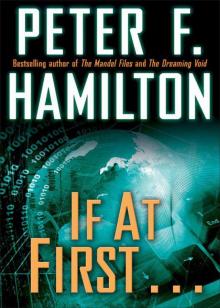 If at First . . .
If at First . . .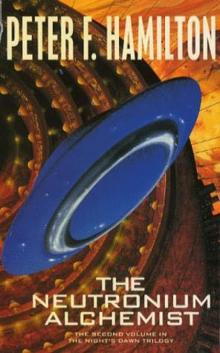 The Neutronium Alchemist
The Neutronium Alchemist Great North Road
Great North Road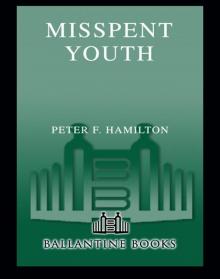 Misspent Youth
Misspent Youth Pandora's Star
Pandora's Star The Evolutionary Void
The Evolutionary Void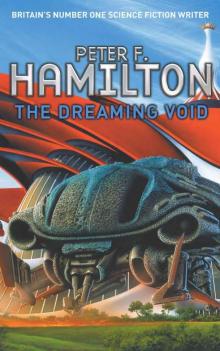 The Dreaming Void
The Dreaming Void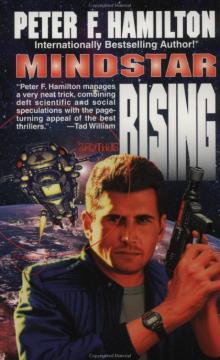 Mindstar Rising
Mindstar Rising The Temporal Void
The Temporal Void A Quantum Murder
A Quantum Murder The Hunting of the Princes
The Hunting of the Princes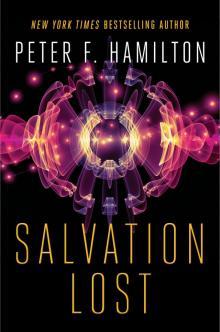 Salvation Lost
Salvation Lost The Dreaming
The Dreaming Salvation
Salvation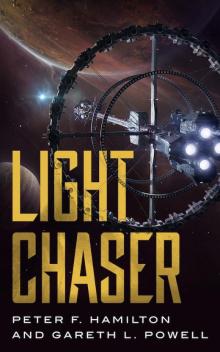 Light Chaser
Light Chaser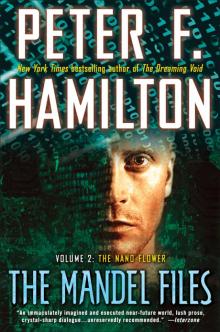 The Mandel Files, Volume 2: The Nano Flower
The Mandel Files, Volume 2: The Nano Flower![The Saints of Salvation [British Ed.] Read online](http://i1.bookreadfree.com/22/the_saints_of_salvation_british_ed__preview.jpg) The Saints of Salvation [British Ed.]
The Saints of Salvation [British Ed.]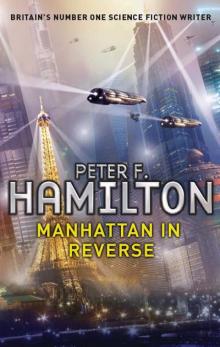 Manhattan in Reverse
Manhattan in Reverse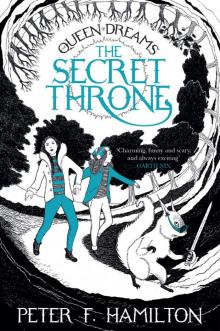 The Secret Throne
The Secret Throne A Window Into Time
A Window Into Time A Second Chance at Eden
A Second Chance at Eden The Nano Flower
The Nano Flower The Confederation Handbook
The Confederation Handbook The Naked God
The Naked God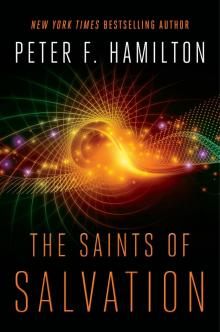 The Saints of Salvation
The Saints of Salvation The Void Trilogy 3-Book Bundle
The Void Trilogy 3-Book Bundle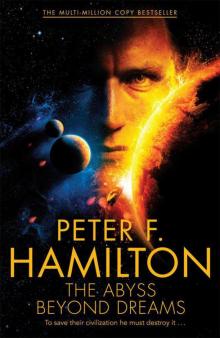 The Abyss Beyond Dreams
The Abyss Beyond Dreams A Voyage Through Air
A Voyage Through Air Judas Unchained
Judas Unchained The Commonwealth Saga 2-Book Bundle
The Commonwealth Saga 2-Book Bundle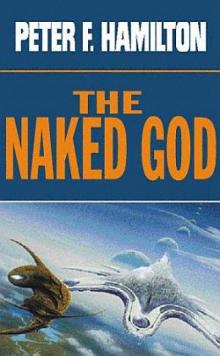 The Naked God - Flight nd-5
The Naked God - Flight nd-5 Night Without Stars (Chronicle of the Fallers Book 2)
Night Without Stars (Chronicle of the Fallers Book 2) Neutronium Alchemist - Conflict nd-4
Neutronium Alchemist - Conflict nd-4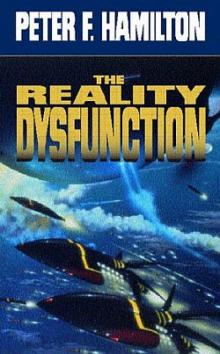 Reality Dysfunction - Expansion nd-2
Reality Dysfunction - Expansion nd-2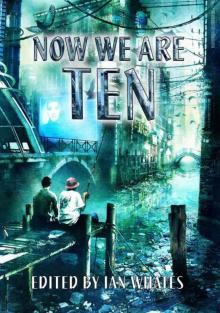 Now We Are Ten: Celebrating the First Ten Years of NewCon Press
Now We Are Ten: Celebrating the First Ten Years of NewCon Press Neutronium Alchemist - Consolidation nd-3
Neutronium Alchemist - Consolidation nd-3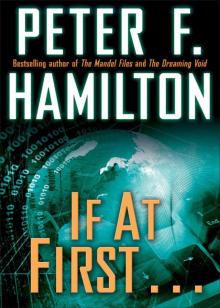 If at First . . . (Short Story)
If at First . . . (Short Story) A Second Chance at Eden nd-7
A Second Chance at Eden nd-7 Judas Unchained cs-2
Judas Unchained cs-2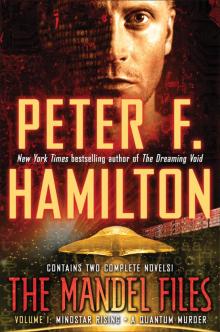 The Mandel Files, Volume 1
The Mandel Files, Volume 1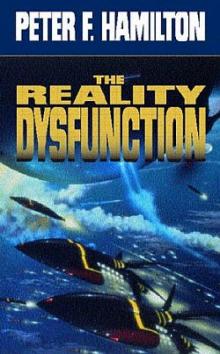 Reality Dysfunction — Emergence nd-1
Reality Dysfunction — Emergence nd-1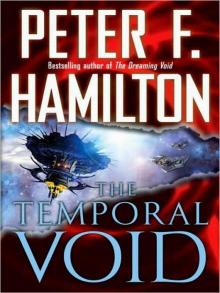 The Temporal Void (ARC)
The Temporal Void (ARC) The Mandel Files
The Mandel Files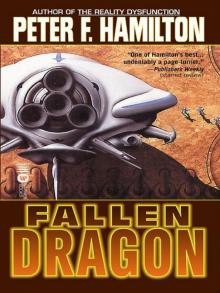 Fallen Fragon
Fallen Fragon Misspent Youth (commonwealth saga)
Misspent Youth (commonwealth saga)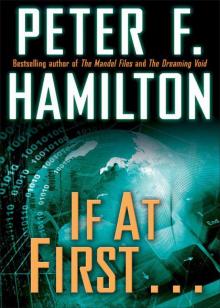 If at First...
If at First... Best of British Science Fiction 2016
Best of British Science Fiction 2016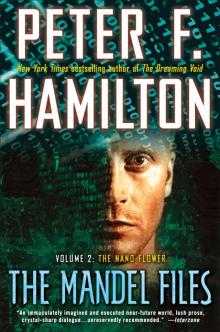 The Mandel Files, Volume 2
The Mandel Files, Volume 2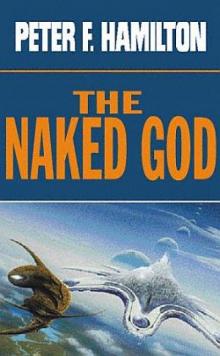 The Naked God - Faith nd-6
The Naked God - Faith nd-6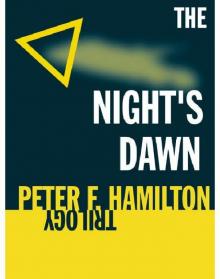 The Night's Dawn Trilogy
The Night's Dawn Trilogy Pandora's Star cs-2
Pandora's Star cs-2 A Window into Time (Novella)
A Window into Time (Novella)